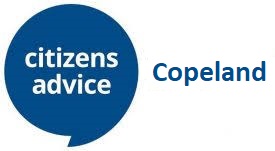Financial Wellbeing
Select advice topic

Using Buy Now Pay Later to shop
Buy Now Pay Later firms have grown in popularity over the past few years. They let you split or delay payments to make them more manageable in the short term. They’re sometimes interest-free for a short period of time, meaning it won’t cost you anything extra to buy your items this way. Whilst this may feel like an easy way to pay for something in the short term, lots of people don’t know what they’re fully signing up for. For instance, many people don’t know that it is technically a form of credit, and if you miss payments, it can affect your credit score. Or that interest rates can be high and you have less protections than other forms of credit.
Understanding your debt
If you can’t pay all of your bills, it might help to work out what is a priority and non-priority bill. Priority bills should always come first as falling behind on them can lead to priority debt which can lead to particularly serious problems. These include losing your home, being cut off from essential supplies like gas or electricity, having essential possessions taken away, or being sent to prison.
Priority debts include:
- Rent arrears
- Mortgage arrears
- Council Tax arrears
- Gas and electricity
- Phone or internet bills
- TV licence payments
- Overpaid Tax Credit
- Court Fines
- Unpaid income tax or VAT
You can’t be sent to prison or be evicted for not paying non-priority debts. However, if you don’t pay and don’t give an explanation, the people you owe money to, known as creditors, may take you to court.
Non-priority debts include:
- credit card or store card debts
- catalogue debts
- unsecured loans, including payday loans
- overdrafts
- unpaid water bills — your supplier can’t cut off your water supply
- overpayments of benefits — apart from tax credits
- money owed to private businesses such as vets, nurseries, solicitors, garages, builders and funeral directors
More information on dealing with your debts can be found here.


